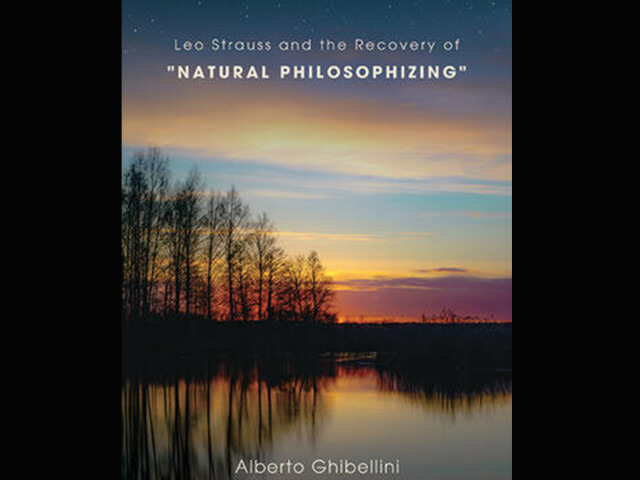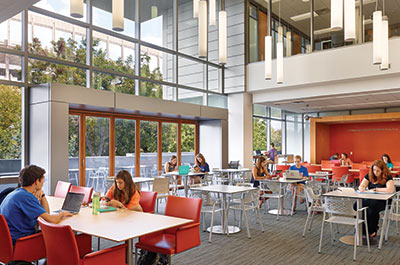"Fix reason firmly in her seat, and call to her tribunal every fact, every opinion."
- Thomas Jefferson

This caption describes the image above.
About the Jefferson Center
The aim of the Thomas Jefferson Center is to realize Jefferson's vision of educating citizens and leaders to understand the meaning of liberty and to exercise it wisely. We share Jefferson's conviction that one of the best ways to attain a liberal education—an education suited for a free individual in a free society—is through a serious study of the great books. In our courses, students engage in a direct, respectful, but probing and critical study of major creative and theoretical works that have shaped human thought and history. They enter into debates about human nature, ethics, and the meaning of life. They learn skills of critical reasoning, close reading, and clear, cogent writing.
The Jefferson Center is a community of scholars and students drawn from many departments and many schools of thought, united by a passion for fundamental questions, a spirit of open inquiry, and a willingness to engage in critical self-scrutiny. It is a safe zone for the vigorous discussion of unsafe ideas. It is a place where intellectual diversity and debate are encouraged rather than suppressed, where no one is cancelled for articulating one’s beliefs and ideas, and where students are trained in the art and practice of having constructive discussions on fraught questions, both urgent and timeless.
We offer the Certificate Program in Core Texts and Ideas, providing a coherent path through UT's core curriculum for students in all colleges; the Jefferson Scholars Program, an integrated learning community for students pursuing the certificate; an interdisciplinary major in European Thought; post-doctoral fellowships; a book club; and lectures and symposia for the university and broader community.
Learn More

Civic Thought Initiative
The Jefferson Center is launching a new program of course development grants in the College of Liberal Arts to deepen students’ understanding of the theoretical foundations of liberty, the historical development of free institutions, the modern traditions of liberal and conservative thought, and the practices of constructive civil discourse.
Learn More
The aim of the Thomas Jefferson Center is to realize Jefferson's vision of educating citizens and leaders to understand the meaning of liberty and to exercise it wisely. We share Jefferson's conviction that one of the best ways to attain a liberal education—an education suited for a free individual in a free society—is through a serious study of the great books. In our courses, students engage in a direct, respectful, but probing and critical study of major creative and theoretical works that have shaped human thought and history. They enter into debates about human nature, ethics, and the meaning of life. They learn skills of critical reasoning, close reading, and clear, cogent writing.
The Jefferson Center is a community of scholars and students drawn from many departments and many schools of thought, united by a passion for fundamental questions, a spirit of open inquiry, and a willingness to engage in critical self-scrutiny. It is a safe zone for the vigorous discussion of unsafe ideas. It is a place where intellectual diversity and debate are encouraged rather than suppressed, where no one is cancelled for articulating one’s beliefs and ideas, and where students are trained in the art and practice of having constructive discussions on fraught questions, both urgent and timeless.
We offer the Certificate Program in Core Texts and Ideas, which provides a coherent path through UT's core curriculum for students in all colleges; the Jefferson Scholars Program, an integrated learning community for students pursuing the certificate; an interdisciplinary major; post-doctoral fellowships; a book club; and lectures and symposia for the university and broader community.
Senior Profiles

Photo Credit.

Photo Credit.

Photo Credit.

Photo Credit.

Photo Credit.

Photo Credit.

Photo Credit.

Photo Credit.

Photo Credit.
Student Reflections
Add Video Headline Here
Add video description here.

Undergraduate Student Reflections on Tutoring:
Ashleigh Prather
I have been a Reading Buddy for Communities in Schools for nearly three months now, and I have loved every minute of it. Watching the kids develop their reading skills every week has been absolutely amazing. Volunteering is the highlight of my week, I adore seeing the kids’ faces light up when they successfully identify words as we read together. Being a volunteer allows me to help cultivate a love of learning in the next generation, which is worth everything.

Undergraduate Student Reflections on Tutoring:
Leo Gonzales
The Jefferson Scholars have given me an invaluable opportunity to directly serve the Austin community. I am so fortunate to help elementary school students improve their grammar and reading skills. I am also grateful I made an impact because I saw my buddies improve. Everytime I went to Becker Elementary School I was excited to be there since I sincerely enjoyed it. One of the best memories I have is when my little buddy applied our grammar and reading skills to comic books. Since I loved this experience, I plan on volunteering again in the fall!

Undergraduate Student Reflections on Tutoring:
Aidan Cournoyer
Volunteering with Communities in Schools (CIS) has been a really great way to give back to the community while taking a break from my academics. Service learning has always been a big part of my school experience, and volunteering with CIS has given me the chance to grow myself while helping younger students. I'm glad to make a genuine impact on kids who may not have anyone else in their lives, and I've felt like CIS has made that all the easier. I would highly recommend anyone interested in service to participate!







Jefferson Scholars
The Jefferson Scholars Program is a challenging, six-course integrated sequence in the great books and ideas of the ancient, medieval, and modern worlds.
Learn More
Donations
We welcome gifts both to cover current year expenses and to build an endowment. Endowment funds may be designated for any purpose but are especially needed for the Jefferson Scholars Program.
Learn More
Certificate Program in Core Texts and Ideas
The Certificate Program in Core Texts and Ideas, our recommended program for undergraduates, is an introduction to the liberal arts through the study of the great books. It complements any major with an integrated sequence of six courses that can also satisfy UT general education requirements.
Learn More
Book Club
The Jefferson Book Club, open to all interested University of Texas undergraduates, graduate students, post-doctoral fellows, and faculty, is a forum for informal discussions of the great books. Copies of the readings for each meeting will be made available about a week beforehand.
Learn More
Civic Thought Initiative
The Jefferson Center is launching a new program of course development grants in the College of Liberal Arts to deepen students’ understanding of the theoretical foundations of liberty, the historical development of free institutions, the modern traditions of liberal and conservative thought, and the practices of constructive civil discourse.
Learn More



Faculty Book Spotlight

This caption describes the image above.
Geoffrey S. Smith & Brent C. Landau
In this book, Geoffrey S. Smith and Brent C. Landau enter into the controversy surrounding this document and argue that the Secret Gospel of Mark is neither a first-century alternative gospel nor a twentieth-century forgery by the scholar who announced its discovery. Instead, this account is intimately bound up with the history of Mar Saba, one of the oldest monasteries in the Christian world. In this fascinating work, Smith and Landau present the realities and misconceptions surrounding not only the now-lost manuscript but also its brilliant, enigmatic, and acerbic discoverer, Morton Smith.
Faculty Book Spotlight
by Alberto Marco Giovanni Ghibellini
Among the political philosophers of the twentieth century, Leo Strauss is usually singled out for his attempt to revitalize the ancient approach to counter the relativism of both historicism and positivism. It is less commonly underscored, however, that the cornerstone of this attempt is the recovery of the question of "nature," which he regarded as inseparable from genuine philosophy since its inception in ancient Greece.

Photo Credit.
Essays and Lectures








Add Video Headline Here
Add video description here.
UT-Austin protests and the state of free speech on college campuses
This week, The Texas Tribune spoke with Edgar Saldivar, a senior staff attorney with the American Civil Liberties Union of Texas and Lorraine Pangle, a professor of government and co-director of the Thomas Jefferson Center for the Study of Core Texts and Ideas at the UT- Austin, to help provide context around the laws governing free speech, how free speech has been protected and challenged in campus protests, and what we should all learn from the last few weeks.
Thomas Jefferson Center for the Study of Core Texts and Ideas
Dana Stauffer, Director




